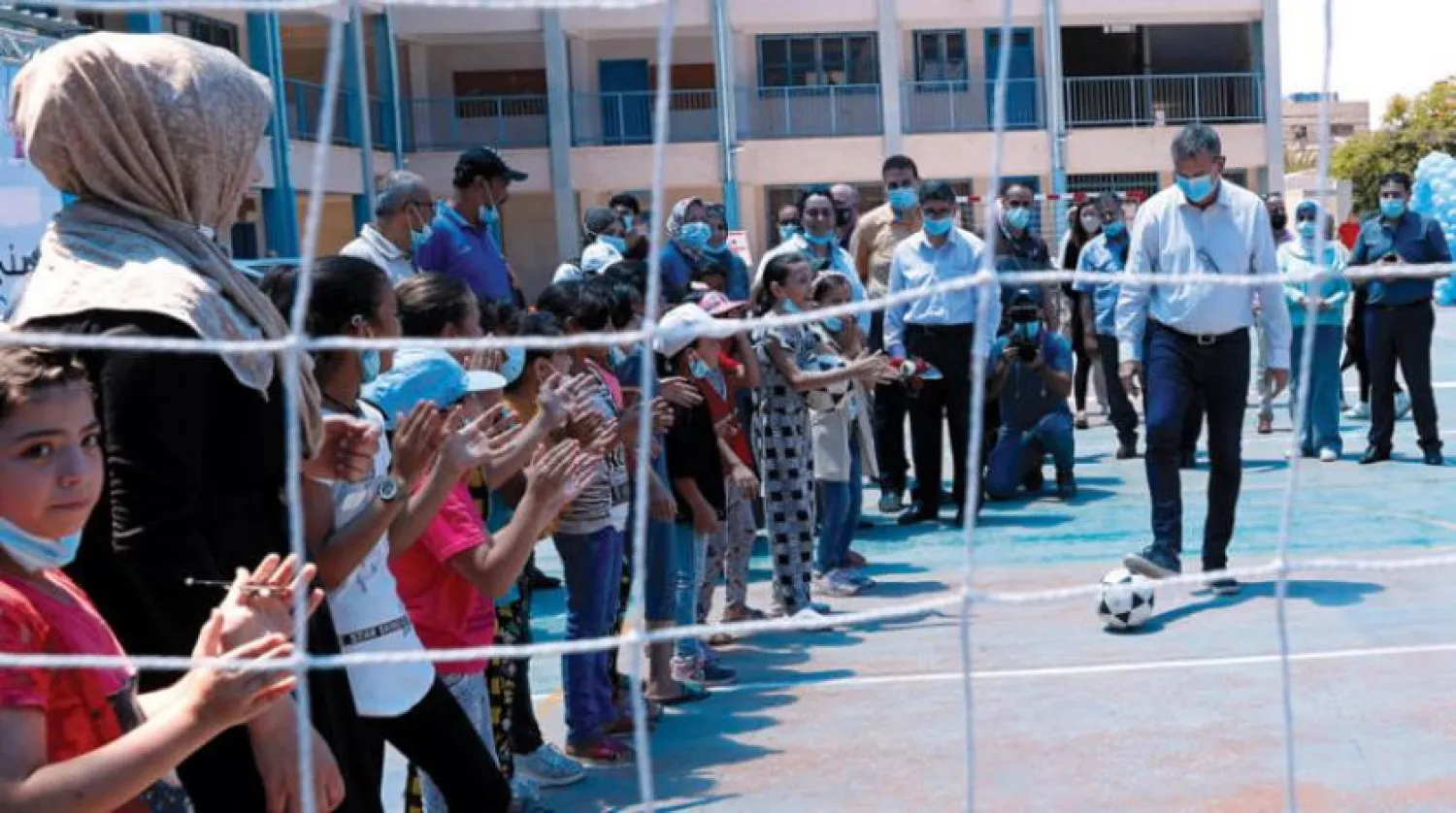The United Nations agreed to a joint proposal by several mediators, to take over the distribution of the Qatari grant to families in the Gaza Strip.
Multiple sources said that the UN envoy for the Middle East Peace Process, Tor Wennesland, informed Israel and Qatar of the agreement to take charge of the grant and disburse it.
Israeli and Palestinian media confirmed that the money would be distributed through banks affiliated with the Palestinian Monetary Authority, such as the Bank of Palestine, and not through the post or Hamas-affiliated banks, as the case during the last war.
This came after the Israeli government decided to ban the transfer of Qatari funds or other funds to the Gaza Strip, as it was during the government of former Prime Minister Benjamin Netanyahu.
Israeli Prime Minister Naftali Bennett said: “Israel is interested in calm and has no interest in harming Gaza residents, but violence… will be met with a strong response.”
Speaking at the Israeli cabinet, Bennett also indicated: “We are also working on a solution to allow humanitarian assistance to Gaza residents, without suitcases of dollars,” referring to the money that Qatar has provided the Strip in recent years.
The Israeli government wants to achieve specific goals, without Hamas benefiting from them. It has prevented the transfer of Qatari funds to Gaza since the 11-day war last month and has allowed only part of the money to be used to supply fuel to the Strip.
Israel offered to transfer the money through the Palestinian Authority, but Hamas and Qatar strongly rejected this, so the United Nations was chosen.
Meanwhile, the Palestinian General Federation of Trade Unions (PGFTU) demanded, on Sunday, lifting the Israeli siege imposed on the Gaza Strip since 2007, the opening of the crossings, and the immediate and rapid reconstruction of destroyed infrastructure.
This came during a sit-in organized by the Federation of Trade Unions in front of the Beit Hanoun - Erez checkpoint in the Gaza Strip.
Union official Khaled Hussein said that the Israeli blockade and the closure of the crossings are pressuring Gazan families. The number of poor families has increased, and medicine and food supplies have run out.
Hussein stated that tens of thousands of families in the Gaza Strip are without any source of income, noting that hundreds of homes that were destroyed in the 2014 war have not been built yet, and their families are still homeless, according to DPA.
Israel restricted the operations at the Gaza crossings and prevented goods and basic commodities from entering for two months, according to Hussein, adding that this caused a major humanitarian disaster.
He also indicated that the poverty rate among workers rose to more than 80 percent, and the unemployment rate exceeded 60 percent, while the number of unemployed people reached 270 thousand workers as a result of the blockade.
He warned that Israel's measures constitute a “slow death” against two million people in the Gaza Strip, calling for the speedy reconstruction of destroyed buildings during the last round of tension to restore the economic activity and alleviate the severity of the situation.
The official called for the establishment of a support fund for Palestinian workers in the face of unemployment, blockade, and poverty.









